The Master Musicians
New Series Edited by Eric Blom
ELGAR
UNIFORM WITH THIS VOLUME
BACH  C. F. Abdy Williams
C. F. Abdy Williams
BEETHOVEN  Marion M. Scott
Marion M. Scott
BERLIOZ 
 J. H. Elliot
J. H. Elliot
BRAHMS 
 Lawrence Erb
Lawrence Erb
CHOPIN  J. Cuthbert Hadden
J. Cuthbert Hadden
DEBUSSY  Edward Lockspeiser
Edward Lockspeiser
GLUCK 
 Alfred Einstein
Alfred Einstein
HANDEL  C. F. Abdy Williams
C. F. Abdy Williams
HAYDN  J. Cuthbert Hadden
J. Cuthbert Hadden
MENDELSSOHN  S. S. Stratton
S. S. Stratton
MOZART 
 Eric Blom
Eric Blom
PALESTRINA  Henry Coates
Henry Coates
PURCELL 
 J. A. Westrup
J. A. Westrup
SCHUBERT  Edmondstoune Duncan
Edmondstoune Duncan
SCHUMANN  Annie W. Patterson
Annie W. Patterson
TCHAIKOVSKY  Edwin Evans
Edwin Evans
VERDI 
 Dyneley Hussey
Dyneley Hussey
WAGNER 
 Robert L. Jacobs
Robert L. Jacobs
WEBER 
 William Saunders
William Saunders
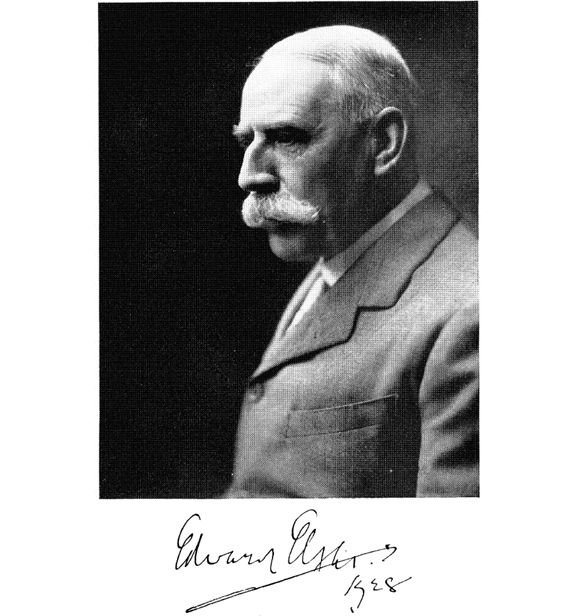
The Master Musicians
ELGAR
by
W. H. REED
All rights reserved
PREFACE
IN writing this book and endeavouring to piece together the various incidents in Edward Elgars life in chronological order I had the constant and willing help of his daughter Carice (Mrs Elgar Blake), to whom I wish to acknowledge my great indebtedness. Searching for scraps of information in old diaries kept intermittently by her mother, Lady Elgar, by Elgar himself or one of his sisters, she was able to give me a good deal of information concerning his early life and that other period between his childhood and the first years of his fame, before I actually knew him personally.
I must also thank Sir Edwards niece, May Grafton, for her enthusiastic support and helpful information.
It will be obvious to the reader that it has not been possible to bring very much in the way of analysis or discussion of Elgars works within the scope of such a volume as this, but in the last chapter I have tried to show some of the salient points in three of his great orchestral works.
One other thing: I have striven to make a readable narrative from what might easily have become a mere chronicle of facts after the manner of a certain school history-book that was a bugbear to me in the days of my youth, taking warning too from a speech delivered by Edmund of Langley, Duke of York, in Shakespeares King Richard II:
As in a theatre, the eyes of men,
After a well-graced actor leaves the stage,
Are idly bent on him that enters next,
Thinking his prattle to be tedious.
W. H. R.
CROYDON,
21st September 1938.
CONTENTS
ILLUSTRATIONS
CHAPTER I
CHILDHOOD AND YOUTH
IN the year 1857, on 2nd June, Edward William Elgar was born at the village of Broadheath, near Worcester.
This typical Worcestershire village, a few miles from Worcester in the direction of Bromyard, lies on the western side of the river Severn, the way to it from the city being across the river by the wide bridge (which has lately been rebuilt), and then almost straight on up a gradually rising hill, leaving Malvern on the left and the race-course and road to Martley and Tenbury on the right.
The village itself consists of a few cottages clustered round a fair-sized common, some tall old trees and a small shop or two. The author has many times strolled about the common and roads adjoining it with Elgar and his dogs; even in the last year of his activity1933the whole place was practically unchanged, Elgar said. The same trees were there: he remembered nearly all of them from his childhood. The cottage in which he was born looked exactly as it did seventy years before.
A short walk down the well-remembered road brought him in sight of the city of Worcester with its famous cathedral standing boldly there by the banks of the shining river. From here also the Malvern Hills could be seen, as indeed they can from almost anywhere within thirty miles, so prominent and dominating a feature are they of this part of the three shiresGloucester, Worcester and Hereford.
It is necessary to mention these surroundings because they undoubtedly had much influence upon the mind of a growing child of such a sensitive and observant nature as the boy Edward: an influence which, it will be seen, permeated all his work and gave to his whole life that subtle but none the less true and sturdy English quality.
Born and reared for the first years of his life in such an idyllic spot, he began at a very early age to show an acute perception of its beauties. Nothing that took place around him passed unnoticed; every mood of nature, every change of colour, every odd saying of his parents or the country folk in the villageall these things were indelibly recorded in his memory, and his memory was such that he had no difficulty in recalling, with complete details, any incident from his earliest boyhood. His eyes dwelt with affectionate familiarity on every aspect of the countryside, the Severn, the rolling hills, the woods and lanes; and the people who dwelt in these surroundings were an abiding source of interest and amusement to him, their doings and quaint saying being quoted at appropriate moments all through his life.
Next page
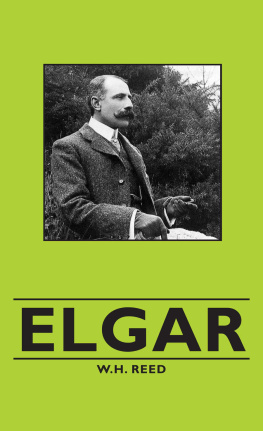
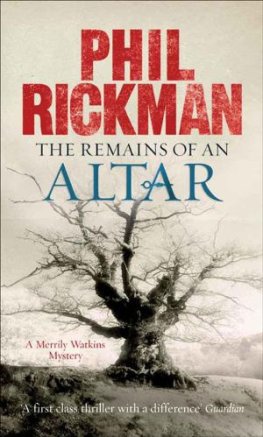

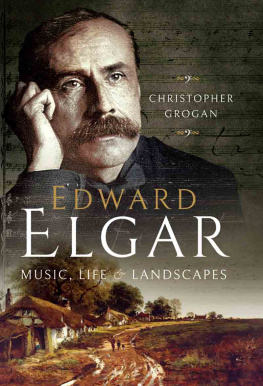
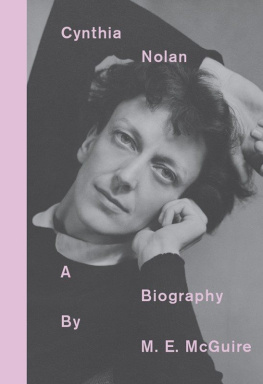

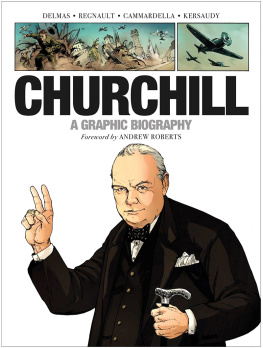

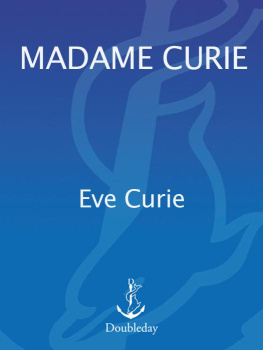
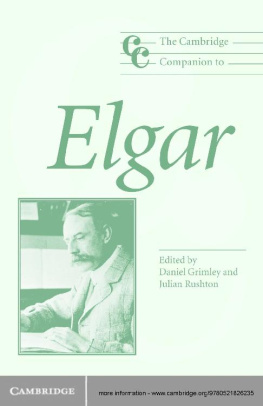
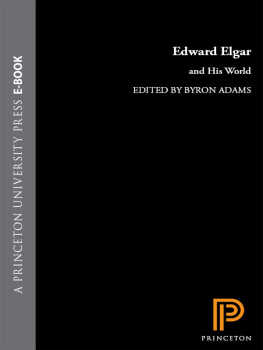
 C. F. Abdy Williams
C. F. Abdy Williams